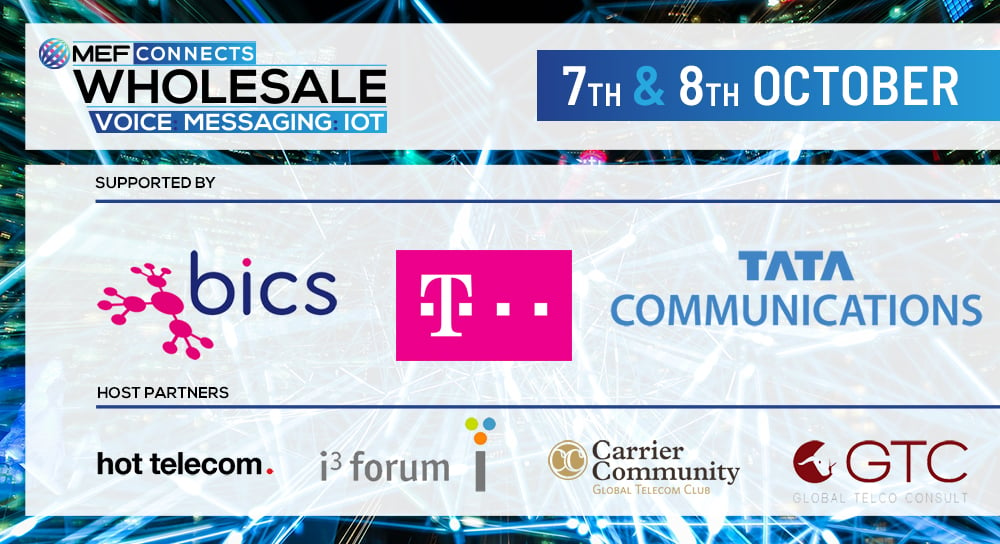During MEF Connects Wholesale, Chief Product Officer at Global Message Services Virginie Debris took part in a panel session discussing the opportunities and challenges of interconnecting RCS worldwide. Here, she expands on the discussion and its main conclusions, the importance of hubs in securing a global inter-connect.
RCS is a truly innovative new channel, one that goes far beyond what SMS can do and far beyond being “SMS 2.0” as some people still want to name it. In fact, one of the most exciting aspects of RCS is the seamless customer experience, in which an entire customer journey (whether support or sales) can take place within a single channel.
However, this seamless interactivity needs to be matched with seamless interconnectivity. This means a comprehensive and coherent hubbing strategy. For the most part – as the panel at MEF Connects Wholesale noted – A2P hubbing will be mapped to existing P2P hubbing, which is already alive and very active in certain markets.
I believe this is vital, because P2P RCS will not generate revenue – users just won’t see any point in paying when they could get many of the same features for free using OTTs. As Carlos Aragon pointed out: ‘that ship has sailed.’ So A2P must be a key part of any RCS deployment. A2P (RBM) is necessary to provide a return on operators’ investments in RCS.
Transparency is a real must in modern messaging, and security is one of the key attractions of RCS. But it will oblige the hub and wholesale community to engage with the verification process, and take care that they are aware of their role in guaranteeing the integrity of chatbot verification.“
Learning from existing RCS hubbing success stories will be essential to accelerating new growth in the right direction (in other words: the A2P direction), particularly with new deployments in emerging markets. Furthermore, hubbing is already a mature ecosystem with regards SMS, which gives us a ready-made model as well as an existing infrastructure and ecosystem from which to start.
In fact, existing hubbing relationships and connections mean that hubs can actually help in the acceleration of RCS adoption, as there is an existing business model and, importantly, support.
This pre-existing ecosystem assures any RCS deployment near-immediate global reach, maximising the return on that investment. Crucially, this hubbing ensures traffic can come into the network from international enterprises, meaning that MNOs won’t necessarily be dependant on local adoption to start reaping the benefits.
With hubbing and aggregator agreements – including peering for increased reach – there is a ready-to-go model and infrastructure for universal RCS adoption and growth.
It is worth noting, however, that looking at RCS hubbing raises new questions (or, perhaps, old questions take on a new significance). For example: what will the commercial agreements look like? There are still questions about how billing for messages and sessions will be handled for RBM, and we will face similar questions over messages and sessions that require intercarrier connectivity.
Then there’s chatbot verification to consider. Transparency is a real must in modern messaging, and security is one of the key attractions of RCS. But it will oblige the hub and wholesale community to engage with the verification process, and take care that they are aware of their role in guaranteeing the integrity of chatbot verification.
As John Puma mentioned during our panel, hubs will also have to consider their role in guarding against ‘bot drift,’ where the content that bots are sending out risks deviating over time from what they were supposed to be sending when they received their original verification. Such drift – whether intentional or accidental – will affect hubs just as much as it will aggregators. Everyone in the chain needs to be vigilant (just as everyone in the chain shares responsibility).
And yet, we have certain advantages going forward. Hubbing and wholesale emerged after SMS – indeed, it addressed a need for intercarrier and international SMS connectivity. Having overcome the initial, inevitable growing pains of the business, hubs now stand ready to not just support but also to accelerate the rollout of RCS. While questions still remain, largely raised by the unique propositions of the technology, we have an excellent tool and model for the future of RCS wholesale.
MEF Connects Wholesale On Demand
MEF Connects Wholesale takes an ecosystem perspective to explore the business trends and challenges driving connectivity today and asks what will create tomorrow’s business?
Across 2-days, we took a detailed look at wholesale trends across Voice, IoT, Messaging & RCS. MEF Members can visit the Member only On Demand page to get presentation slides as well.
Watch now






